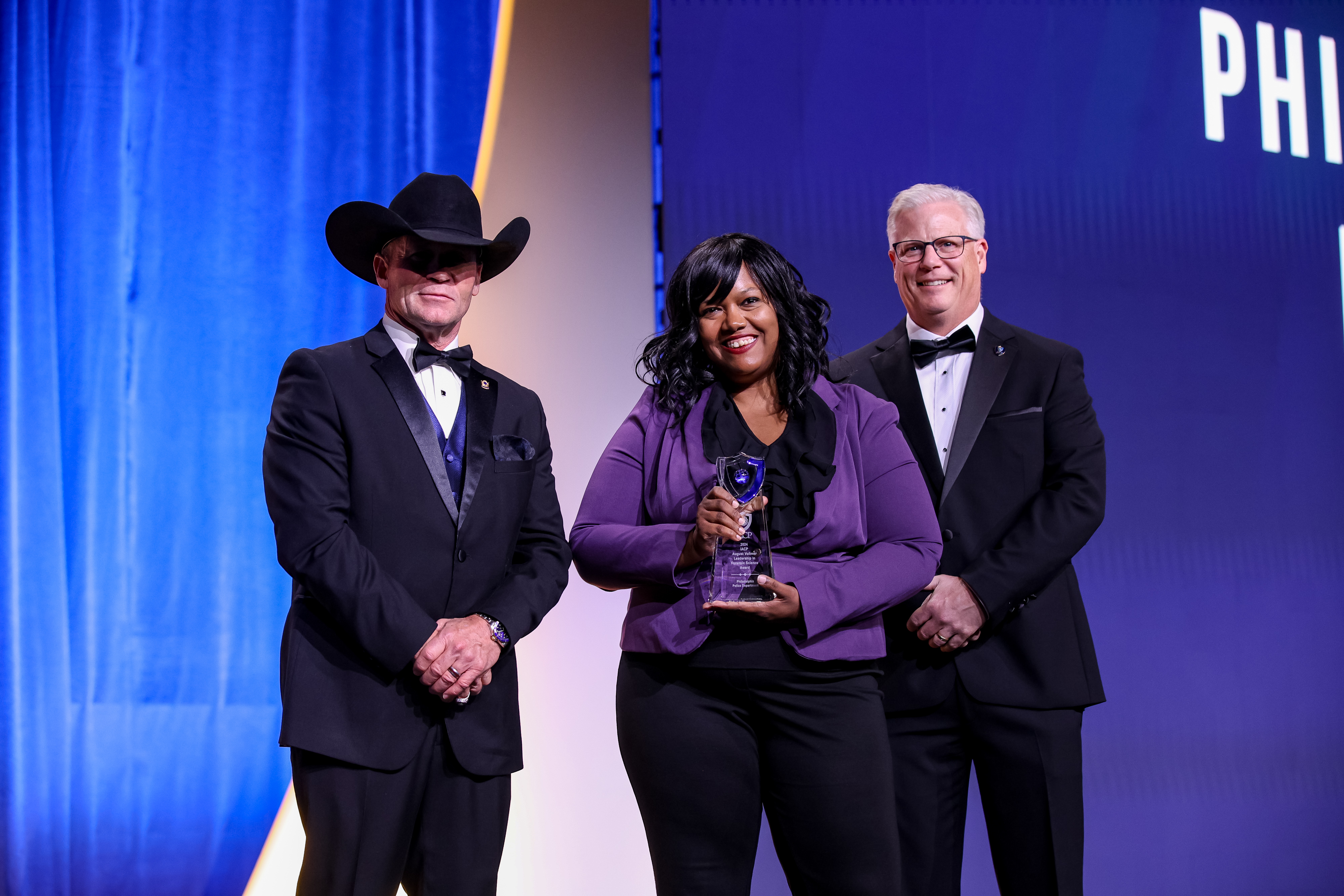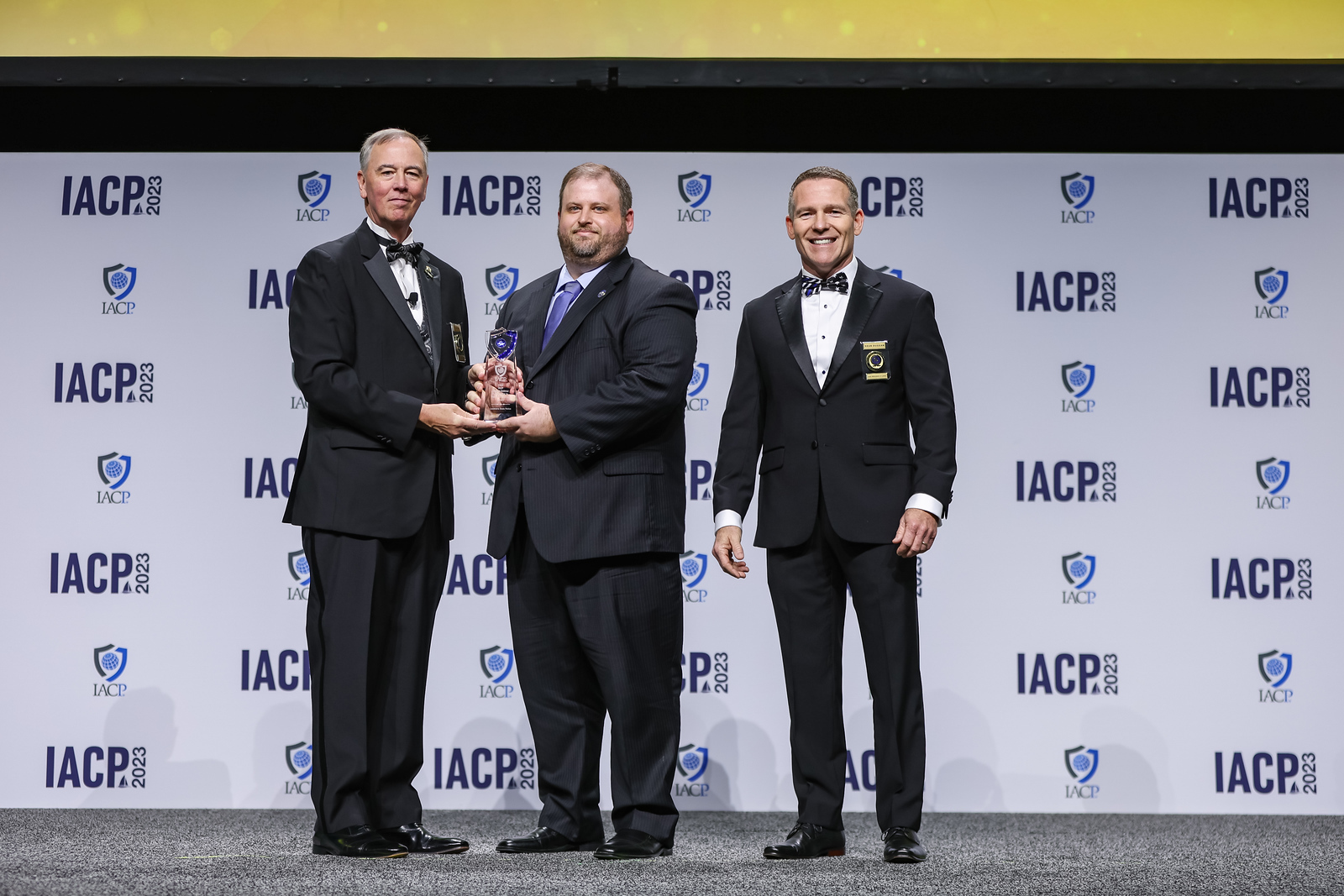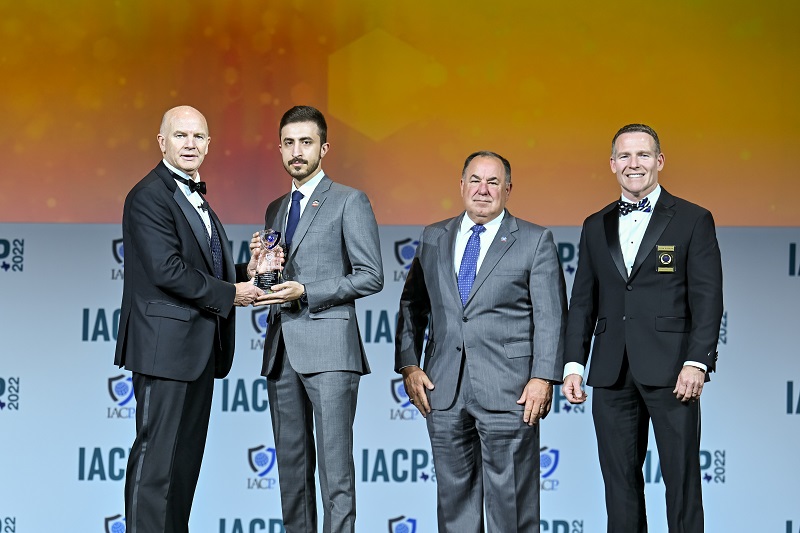IACP August Vollmer Leadership in Forensic Science Award
The IACP August Vollmer Leadership in Forensic Science Award recognizes the proactive, innovative use of forensic technologies by law enforcement agencies and units.
Click here to submit a nomination.
Exemplary programs will demonstrate how new forensic technologies advance criminal investigations and enable agencies to strengthen their evidence collection and analysis.
For further information, contact [email protected].
2024 Winner
Philadelphia Police Department, Pennsylvania

The Philadelphia Police Department, Office of Forensic Science’s Philly Fast Brass program has produced thousands of linkages between shootings and gun crimes. In 2023, this program was expanded to include DNA processing on fired cartridge cases (FCC) from all homicides and officer-involved shootings. That year, 51% of the homicide investigations where DNA from FCCs was attempted, resulted in a DNA profile that was suitable to be searched in the Combined DNA Index System (CODIS). CODIS searches allow the Office of Forensic Science to make links between investigations or identify a person of interest. The inclusion of DNA testing in the Fast Brass program has allowed Philadelphia Police Department investigators to identify shooters, disrupt the proliferation of crime guns through straw purchasers, and uncover and deter patterns of gun crime violence.
2023 Winner
Louisiana State Police

In August 2022, the State of Louisiana, through the efforts of the Louisiana State Police Crime Laboratory in collaboration with the East Baton Rouge Sheriff’s Office, fully integrated the first Rapid DNA Booking System into the East Baton Rouge Parish Prison. This allowed for immediate searching of qualifying arrestee DNA profiles against unsolved crimes of special concern while a qualifying arrestee is still in police custody during the booking process. As a result, there have been hundreds of samples collected and numerous investigative leads generated. The Louisiana State Police Crime Laboratory has been very active in collaborating with other jurisdictions to assist in their implementation of the system and in presenting at various conferences. Additionally, personnel from the laboratory represent the Louisiana State Police on the Scientific Working Group for DNA Analysis Methods (SWGDAM) Rapid DNA Committee, which helps draft national Rapid DNA policies and procedures.
2022 Winner
Dubai Police, United Arab Emirates

The executive team and leadership with the Dubai Police like to push the boundaries of the techniques and processes the department utilizes. This desire led the scientific team of the Dubai Police to design and create a Multiplex system DNA kit. This kit is used worldwide in forensic science genetic laboratories. The Multiplex System DNA kit is used to differentiate closely related males. The kit can separate male DNA when present in large amounts of background female DNA. This assists in sexual assault cases with very low male portion samples. The Multiplex system DNA kit was used recently to solve a high-profile case in Dubai. The kit allowed the Dubai Police to identify the suspect DNA, using blood stains that contained a much greater portion of the female victims DNA. To further complicate the matter, the traditional kit could not differentiate between the two suspects who were brothers. The Multiplex system DNA kit was able to successfully identify the offender.
2021 Winner
Delaware Valley Investigative DNA Database
In late 2019, the Philadelphia Police Department's Office of Forensic Science initiated a regional DNA working group with Buck and Montgomery County representatives to discuss advances in DNA, such as Rapid DNA, and the potential for a regional DNA database that would augment use of the FBI's Combined DNA Index System (CODIS), which resulted in the creation of the Delaware Valley Investigative DNA Database (DVIDD). Utilizing the backbone of each county's Rapid DNA system, the DVIDD connects the three regional law enforcement programs, enabling timely notification of investigative leads. Through the immediate processing of Rapid DNA reference samples, DVIDD partners will be notified of potential investigative leads in real time, which may significantly alter the processing of a subject. Rapid DNA reference samples also have the potential to exclude subjects more quickly from an investigation. In either scenario, the DVIDD provides regional law enforcement with another tool in the forensic sciences toolbox to solve and prevent crime. This partnership of law enforcement and crime laboratories, looking for ways to solve problems while remaining within the confines of appropriate rules and regulations, is impactful and trendsetting.
2020 Winner
Dubai Police, United Arab Emirates

Over the years, the Dubai Police Forensic Laboratory has seen a significant growth in the number of cases with criminals using traditional full-cover female clothing to conceal their identity and not leaving any traces of evidence. In order to improve and strengthen evidence collection and analysis, Dubai Police proposed a new method to analyze the intricate movements of human bone joints. The technique is borrowed from gait recognition where recordings must be taken in ideal lighting and within specific angles. To improve the process, the Dubai Police developed a new technique by enhancing and adapting the technology to forensic usages by building the missing portion of the traditional gait technique, and capturing data from the scene and analyzing joint movements at a micro level. The Dubai Police's multi-model forensic biometric technique utilizes gait and three-dimensional face, ears, hand, and body measurements as a form of identification that has significantly increased the accuracy and validity of a forensic report.
2019 Winner
Dubai Police, United Arab Emirates
The Dubai Police developed a forensic technique called RM-Yplex multiplex assay to better inform their investigative processes. This technique amplifies 13 rapidly mutating Y chromosome short tandem repeats (Y-STR). The RM-Yplex allows male DNA profiling to result in a much higher power of discrimination with more than 99% of male individualization. Previously developed tools would, in most cases, have a maximum power of discrimination of 85%. This technique has not only provided improvements in the accuracy of the process itself but also in cost-effectiveness. The tool has contributed to solving over 724 cases by the end of 2018, including 12 homicide cases and 712 sexual assault cases. Dubai Police have also been able to cut costs by as much as $321,000 by the end of 2018 alone.
2018 Winner
Texas Department of Public Safety, Crime Laboratory Service

In June 2015, the Internet Crimes Against Children Task Force of the Texas Attorney General’s Office received a cyber tip involving the sharing of child pornography. Investigators were able to obtain a search warrant for the person of interest’s Yahoo!, Verizon, and Dropbox accounts and found numerous files of child pornography. After identifying the person of interest, investigators identified a second perpetrator involved. One of the seized photographs contained the second perpetrator’s fingerprints but was not in a format typically accepted by labs and did not contain a scale. The Texas Attorney General’s Office contacted the Texas Department of Public Safety Austin Crime Lab to examine the photograph. They were able to calibrate the image so that it could be entered into the FBI national Automated Fingerprint Identification System (AFIS) leading to a suspect in Georgia. He was arrested and convicted by the Georgia Bureau of Investigation, as well as a nexus of individuals in several states and countries involved in child pornography. With the increased use of digital images, law enforcement has more opportunities to view fingerprints in higher resolution and make identifications. This case not only shows excellent inter-agency cooperation, but also the successful use of new forensic technologies which directly advanced an investigation.
